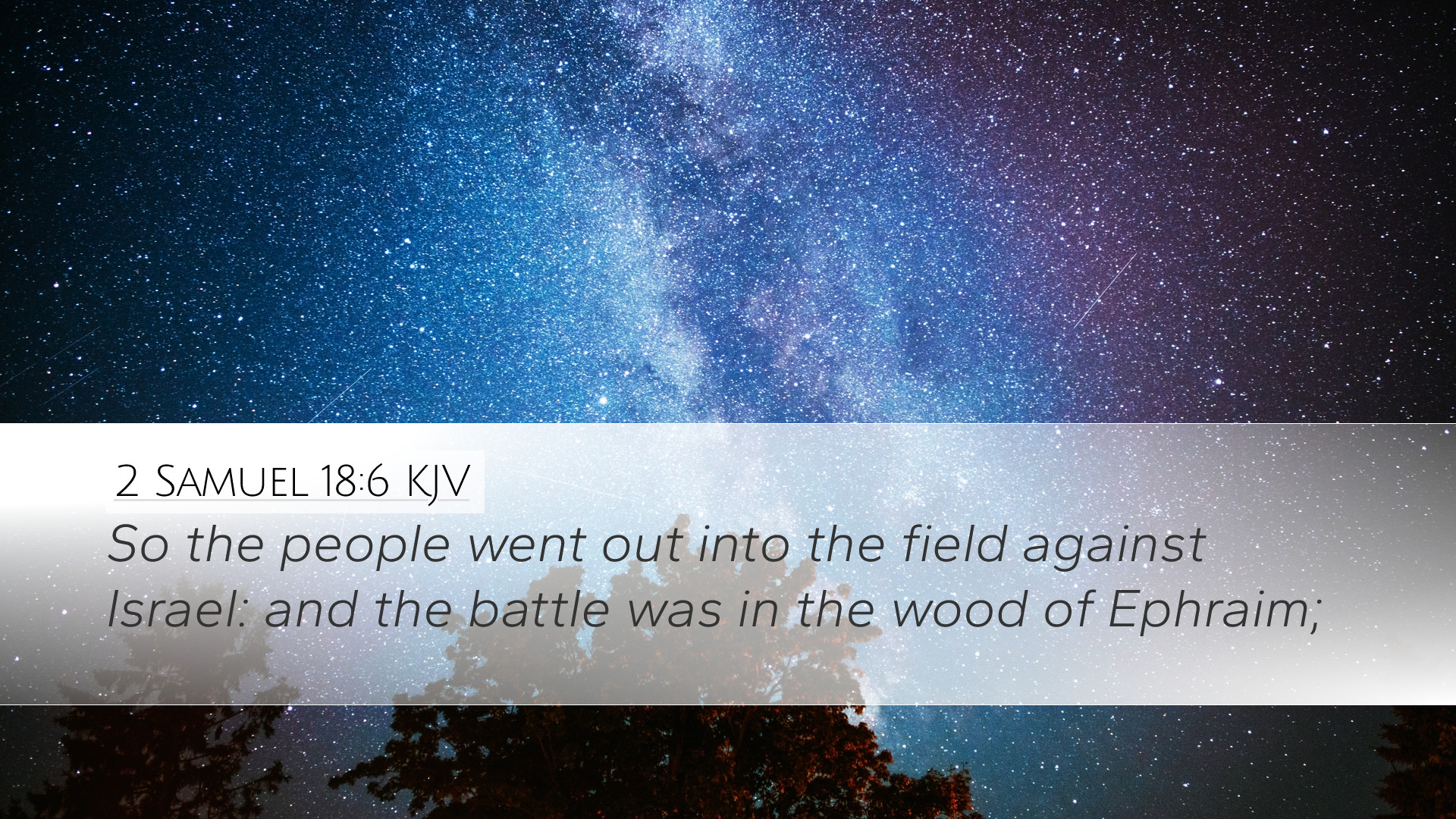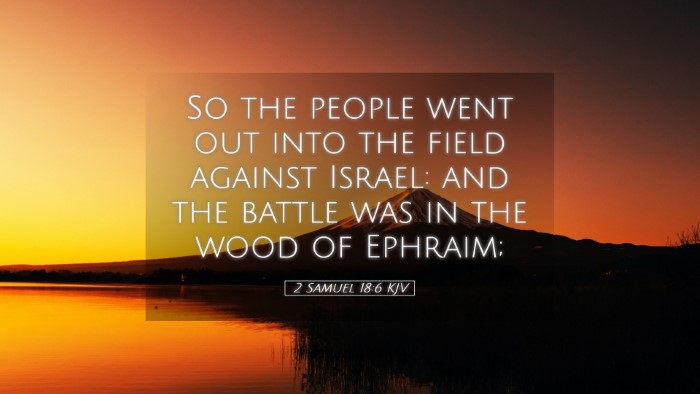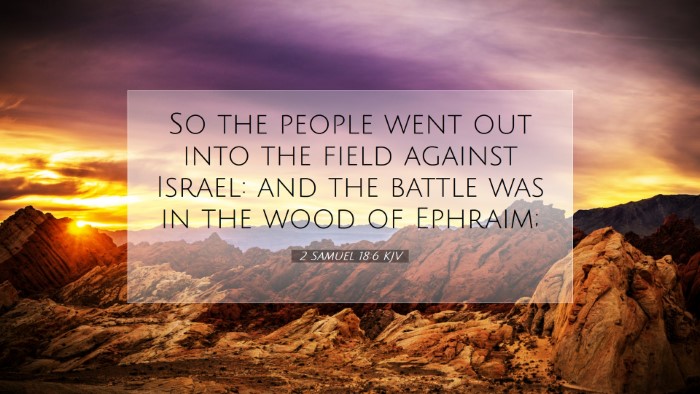Commentary on 2 Samuel 18:6
Introduction
2 Samuel 18:6 narrates a pivotal moment in the conflict between David and his son Absalom. This verse lays the foundation for recounting the tragic events of the battle, highlighting themes of loyalty, the weight of kingship, and divine providence.
Text of the Verse
The verse reads: "So the people went out into the field against Israel: and the battle was in the wood of Ephraim." (2 Samuel 18:6)
Contextual Background
In this passage, we find King David's loyal followers preparing for battle against the forces of Absalom, who has usurped the throne. Understanding the backdrop of familial rebellion, betrayal, and the repercussions of David's past sins, particularly his sin with Bathsheba, enhances our comprehension of this text.
Commentary Insights
- Matthew Henry on the Preparation for Battle
Henry observes that the verse signifies the strategic movements of David's forces against Absalom. The phrase 'went out into the field' illustrates the readiness of David’s men to confront Absalom's rebellion with a resolute spirit.
- Albert Barnes on the Location of the Battle
Barnes emphasizes the significance of the 'wood of Ephraim,' indicating it was a dense area where the battle's fierceness would be matched by the terrain's complexity, symbolizing the chaos surrounding familial strife within God's chosen nation.
- Adam Clarke on the Nature of Warfare
Clarke discusses the military strategies deployed, noting how the terrain of wooded areas often led to unexpected outcomes. He also touches upon the spiritual implications of the battle, suggesting that God’s sovereignty was at play, directing the course of events as a reprimand for Israel's political disarray.
Theological Reflections
This verse invites profound theological contemplation, particularly regarding leadership and accountability. David's choices reverberate through his family and kingdom, illustrating that the repercussions of our decisions can extend beyond our immediate circumstances.
Divine Judgment and Mercy
As David faces the uprising of Absalom, one can see a narrative intertwined with divine judgment for his past failures. The battle serves as a backdrop for demonstrating how God's justice operates alongside His unwavering mercy. Even in the thick of rebellion, God's providential care for David remains evident.
Conflict and Resolution
Moreover, the struggle depicted in this passage underscores the element of personal conflict within the grand narrative of redemption. As fights and struggles characterize our lives, so too do they contribute to our growth and understanding of God's will, echoing Paul’s assurance that all things work together for good (Romans 8:28).
Application for Today
For contemporary readers, this passage serves as a reminder of the complexities involved in leadership and the necessity for seeking divine guidance in making difficult decisions. Pastors and spiritual leaders may find value in reflecting on David's example, pondering the balance between authority and humility, and the need for genuine repentance.
Conclusion
In summary, 2 Samuel 18:6 encapsulates a moment charged with emotional intensity and spiritual significance. By examining the various commentaries on this passage, one can appreciate the depth of its implications for understanding God's involvement in human affairs, the nature of familial ties, and the responsibilities that come with leadership.


